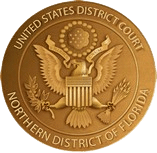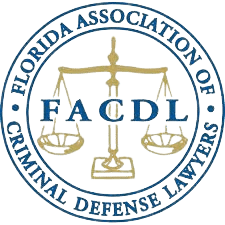Types of Felony Crimes in Florida
Some of the most common felony crimes in Florida include:
- Sexual Assault & Battery
- Kidnapping
- Domestic Violence Crimes
- Sex Crimes
- Drug Charges
- Aggravated Battery on a Pregnant Female
- Domestic Battery by Strangulation
- Child Abuse & Neglect
- Aggravated Assault
- Aggravated Battery
- Murder
- Carjacking
- Grand Theft
- Drug Trafficking
- Robbery
- Stalking & Harassment
- Burglary
Penalties for Felonies in Florida
There are five degrees of felonies in Florida, with separate penalties for each. A Florida felony conviction may result in the following:
- Capital Felony – This is punishable by death or life in prison.
- Life Felony – This is punishable by a term of life or up to 40 years in prison and a fine of up to $15,000.
- First-Degree Felony – This is punishable by up to 30 years in prison and a fine of up to $10,000.
- Second-Degree Felony – This is punishable by up to 15 years in prison and a fine of up to $10,000.
- Third-Degree Felony – This is punishable by up to five years in prison and a fine of up to $5,000.
Possible Felony Sentencing Enhancements in Florida
Sentencing enhancements are aggravating factors that can make penalties harsher, including a longer prison sentence. Some sentencing enhancements include:
- Habitual Felony Offender (HFO) – This is someone who has been convicted of two or more felonies and a new crime within five years of the last conviction or release.
- Violent Career Criminal (VCC) – This is someone who has been convicted of three or more violent felonies, as defined in 776.08, Fla. Stat. Violent felonies include offenses such as murder, manslaughter, rape, robbery, aggravated assault, and certain drug offenses.
- Habitual Violent Felony Offender (HVFO) – This is someone who has been convicted of two or more violent felonies and a new crime within five years of the last conviction or release.
- Prison Releasee Reoffender (PRR) – This is someone who commits a felony within three years of being released from federal or state prison for a felony punishable by at least one year in prison in Florida.
Each of these sentence enhancements will lead to additional time in prison on top of the normal penalties assessed for the felony. It is especially important in these cases to reach out to a lawyer for felony charges to help you understand your options.
Aggravating Factors in Florida Felony Cases
Aggravating factors in Florida felony cases are factors that a judge may consider when sentencing a defendant. These factors can increase the severity of the defendant’s sentence.
Some common aggravating factors in Florida felony cases include:
- A prior criminal record, especially for similar crimes
- Violence or a weapon in the commission of the crime
- Serious physical or emotional harm to the alleged victim
- Prejudice or hatred in committing the crime
- A position of trust or authority over the alleged victim
- A particularly cruel or heinous manner
- The crime was committed for financial gain
A judge is not required to consider aggravating factors when sentencing a defendant. However, if the judge finds aggravating factors present, they may impose a harsher sentence than they would otherwise.
Florida’s 10-20-Life Law
According to § 775.087, Fla. Stat., mandatory minimum sentencing guidelines exist for some crimes committed with deadly weapons. The Florida 10-20-Life law requires that the penalties for those crimes are harsher when a firearm is used in the commission of a felony.
For a felony offense using a firearm, the court must impose at least a 10-year prison sentence. Firing a weapon requires a 20-year sentence, and shooting someone requires a 25-year sentence. This is true whether or not the alleged victim was injured or killed.
The law also imposes minimum sentences on some drug offenses in Florida. Depending on the amount and whether someone died in the related crime, the alleged offender may face seven, 15, 25 years, or life in prison. They may also face the death penalty in certain situations.





